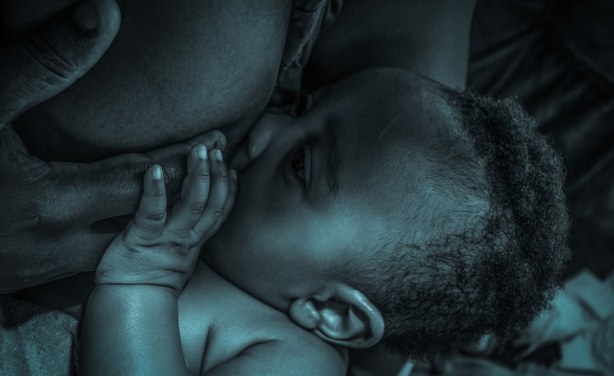-
Nigeria: Exclusive Breastfeeding - Pains, Pangs of Nigerian Career Mothers
Premium Times, 11 December 2022
Many Nigerian women are having to quit their jobs or remain unpaid to achieve exclusive breastfeeding for their babies. Read more »
-
Nigeria: For the Love of Children - Providing Low Cost Fortified Meals for Children in Kontagora Hospital
Nigeria Health Watch, 13 December 2022
On the last day of October 2022, four women from conflict-affected communities in Niger State arrived at Kontagora General Hospital. They were all carrying children who appeared to… Read more »
-
Nigeria: Only Two Out of 10 Children Are Exclusively Breastfed in Katsina State - UN Report
Premium Times, 18 August 2022
The study shows an increase but UNICEF says the progress is too slow. Read more »
-
Nigeria: Delta Steps Up Campaign On Benefits of Exclusive Breastfeeding
This Day, 6 August 2022
As part of activities for this year's World Breastfeeding Week (WBW), the Delta State Government has reiterated the invaluable benefits of exclusive breastfeeding practice to… Read more »
-
Nigeria: Exclusive Breastfeeding in Nigeria Is Only 29 Percent - UNICEF, WHO
This Day, 4 August 2021
In commemoration of the 2021 World Breastfeeding Week, the United Nations Children's Fund (UNICEF) and the World Health Organisation (WHO) have berated the rate of exclusive… Read more »
-
Nigeria: Promoting Exclusive Breastfeeding
This Day, 5 August 2021
Annually, World Breastfeeding Week is marked from August 1 to 7. This year, Ada Ezeogu, a nutrition specialist with the United Nations Children's Funds, while emphasising on the… Read more »
-
Africa: Formula Milk Marketing Disrupts Breastfeeding Goals
SciDev.Net, 14 July 2022
Formula milk companies continue to defy international regulations and target health centres to market their products, a WHO study on formula marketing and its impact on… Read more »
Exclusive Breastfeeding - Pains, Pangs of Nigerian Career Mothers
Many Nigerian women are having to resign from their jobs or remain unpaid to achieve exclusive breastfeeding for their babies, writes Medinat Kanabe for the Premium Times.
WHO and the United Nations Children's Fund (UNICEF) recommend that infants should be exclusively breastfed for the first six months of life, to achieve optimal growth, development, and health. However, despite its numerous benefits, research by UNICEF shows that 70% of Nigerian children lack access to exclusive breastfeeding.
A 2019 study of maternity entitlements in Nigeria by the health ministry - in collaboration with UNICEF and Alive & Thrive, a global nutrition initiative - showed that the effective implementation of maternity entitlements is not consistent across the economic sectors. The study showed that predominantly in the informal sector, women do not benefit from maternal entitlements granted by law "largely because there is no institutionalised policy or guiding principle for these types of benefits."
The Director-General of the World Health Organisation (WHO), Tedros Ghebreyesus, in a statement to mark the 2022 World Breastfeeding Week, said the world must intensify efforts to promote exclusive breastfeeding. Ghebreyesus said as global crises continue to threaten the health and nutrition of millions of babies and children, the vital importance of breastfeeding as the best possible start in life is more critical than ever. He said lack of exclusive breastfeeding has resulted in high stunting rates of 37% of children under five, noting that only 9% of organisations globally, have a workable breastfeeding policy.
InFocus
-
As the world marks the breastfeeding week, new mothers - even those with Covid-19 - have been advised to continue nursing their babies, despite the fear of transmitting the virus ... Read more »



